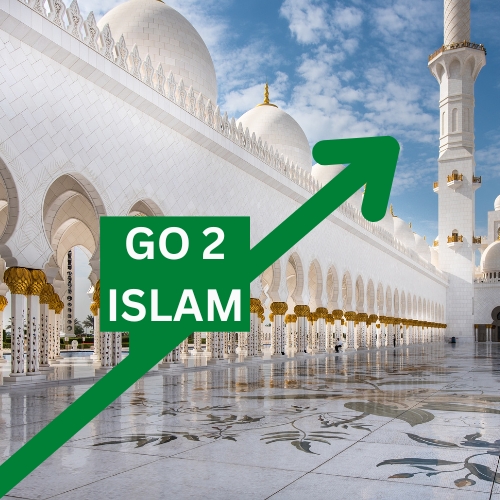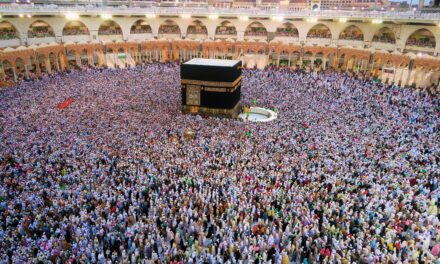The question of who the most influential human to have ever lived is a matter of subjective opinion. However, there are several individuals throughout history who have had a profound impact on the world and continue to shape it in various ways even today. In this article, we will examine some of the individuals who could be considered as the most influential human to have ever lived.
- Prophet Muhammad (peace be upon him) – Prophet Muhammad is considered by over 1 billion Muslims to be the last and final prophet of Allah. He lived in the Arabian Peninsula around the 7th century and is considered the founder of Islam. His teachings, as recorded in the Quran, have had a profound impact on the world and continue to shape the lives of millions of people around the globe.
- Jesus Christ – Jesus Christ is considered the central figure of Christianity, which is the world’s largest religion. His teachings and message of love, compassion, and forgiveness have inspired countless people throughout history and continue to do so today.
- Socrates – Socrates was a Greek philosopher who lived in the 5th century BCE. He was widely regarded as one of the greatest philosophers of all time and is credited with founding Western philosophy. His emphasis on the importance of self-reflection and the pursuit of knowledge has had a lasting impact on Western thought and continues to shape our understanding of the world.
- Julius Caesar – Julius Caesar was a Roman statesman, general, and the first dictator of the Roman Republic. He is widely regarded as one of the most important figures in Roman history, and his political and military achievements have had a lasting impact on the world.
- Confucius – Confucius was a Chinese philosopher who lived in the 5th century BCE. He is widely regarded as one of the most important figures in Chinese history and is credited with founding Confucianism, one of the world’s oldest and most influential philosophical systems.
- Alexander the Great – Alexander the Great was a King of Macedonia who lived in the 4th century BCE. He is widely regarded as one of the greatest military commanders of all time, and his empire-building achievements had a profound impact on the world.
- William Shakespeare – William Shakespeare is widely considered to be the greatest writer in the English language and one of the greatest playwrights of all time. His works have had a lasting impact on Western literature and continue to be widely read and performed today.
- Isaac Newton – Isaac Newton was an English mathematician, physicist, and astronomer who lived in the 17th century. He is widely regarded as one of the greatest scientists of all time and is credited with making major contributions to our understanding of the physical world, including the laws of motion and the theory of gravity.
- Mahatma Gandhi – Mahatma Gandhi was an Indian independence activist who lived in the 19th and 20th centuries. He is widely regarded as one of the most important figures in modern Indian history and is credited with leading India to independence from British rule through nonviolent civil disobedience.
- Albert Einstein – Albert Einstein was a German-born physicist who lived in the 20th century. He is widely regarded as one of the greatest scientists of all time and is credited with making major contributions to our understanding of the physical world, including the theory of general relativity.
In conclusion, the question of who the most influential human to have ever lived is a matter of subjective opinion. However, the individuals mentioned in this article have all had a profound impact on the world and continue to shape it in various ways. Whether it is through their teachings, their political and military achievements, their artistic or scientific contributions, or their activism, they have all left a lasting legacy that continues to inspire
Prophet Muhammad (peace be upon him) is considered by over 1 billion Muslims to be the last and final prophet of Allah. As such, he has had a profound impact on the lives of millions of people around the world and continues to shape the world today through his teachings and legacy.
Prophet Muhammad’s teachings, as recorded in the Quran, emphasize the importance of justice, compassion, and equality. He also taught the importance of charity, prayer, and good deeds, and emphasized the importance of treating others with respect and kindness. These teachings have had a profound impact on the world and continue to shape the lives of millions of people around the globe.
In addition, Prophet Muhammad’s life and leadership serve as a model for millions of Muslims around the world. He lived a life of simplicity and devotion to Allah, and his actions and decisions were guided by his belief in the unity of all people and the importance of justice and compassion.
Therefore, the inclusion of Prophet Muhammad (peace be upon him) in the list of the most influential human to have ever lived is based on the profound impact that his teachings and legacy have had on the world and the continued relevance of his message today.
In his lifetime, Prophet Muhammad (peace be upon him) played several important roles. These roles include:
- Prophet and Messenger of Allah: Prophet Muhammad received revelations from Allah through the Angel Gabriel and was tasked with conveying these messages to the people. He is considered by Muslims to be the last and final prophet sent by Allah to guide humanity.
- Political and Military Leader: During his lifetime, Prophet Muhammad led his community in several battles and political negotiations. He established the first Islamic state in Medina and played a key role in unifying the Arabian Peninsula.
- Religious Leader: Prophet Muhammad was a religious leader who taught and demonstrated the principles of Islam. He encouraged his followers to lead a life of piety and devotion to Allah, and to treat others with kindness and compassion.
- Social Reformist: Prophet Muhammad played a key role in bringing about social and moral reform in Arabian society. He condemned practices such as the killing of female infants, tribal rivalries, and the oppression of the weak and vulnerable.
- Educator: Prophet Muhammad was an educator who taught his followers about the principles of Islam, including its beliefs, practices, and moral teachings. He encouraged them to seek knowledge and to develop their character and spiritual well-being.
- Statesman: As a statesman, Prophet Muhammad played a key role in the development of the first Islamic state in Medina. He established treaties and alliances with other tribes and communities, and his leadership and wisdom helped to establish a stable and just society.
Overall, Prophet Muhammad played a multifaceted role in his lifetime, serving as a religious and spiritual leader, a political and military leader, a social reformist, an educator, and a statesman. His legacy continues to inspire and guide millions of people around the world today.




